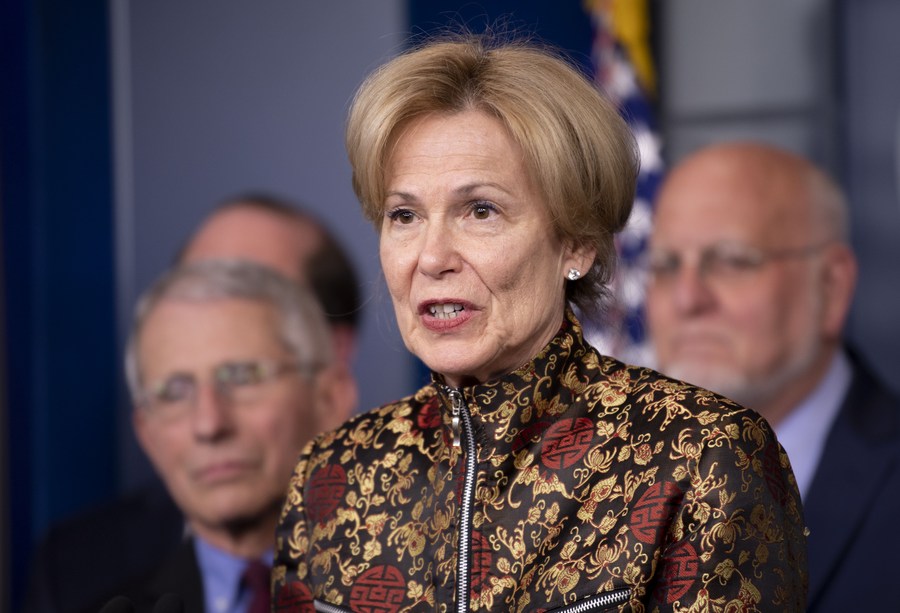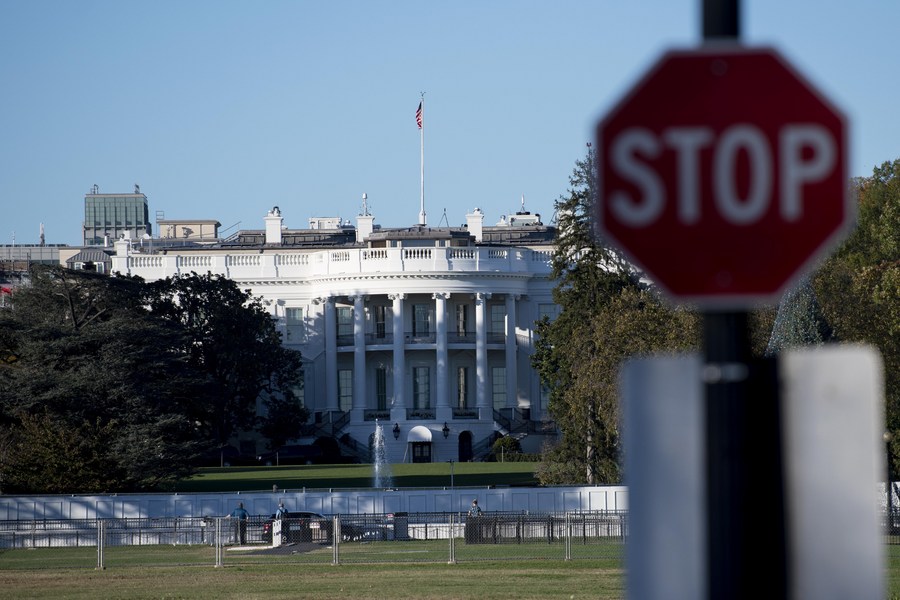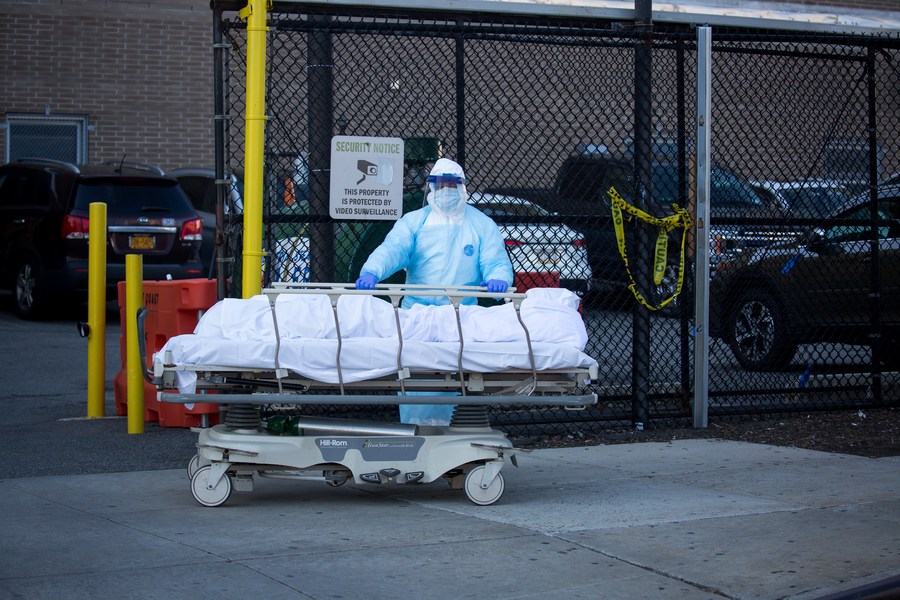
White House coronavirus response coordinator Deborah Birx attends a press conference on the COVID-19 at the White House in Washington D.C., the United States, on March 9, 2020. (Xinhua/Liu Jie)
In the early crucial weeks of the crisis, "some roaming the halls of the West Wing believed that the less we did, the less we would be held accountable for whatever was about to happen," wrote Deborah Birx, Donald Trump administration's coronavirus response coordinator in her book.
WASHINGTON, June 2 (Xinhua) -- It is "the clearest account yet of how Trump's team botched the pandemic," a review recently published by The Atlantic wrote of Silent Invasion, a book written by the Donald Trump administration's coronavirus response coordinator Deborah Birx.
The review was authored by Richard Tofel, former president of ProPublica and a distinguished visiting fellow at the Harvard T. H. Chan School of Public Health. He thinks Birx's book "offers more detail and nuance than any other pandemic book."
"Birx does a very good job of distilling what went wrong," Tofel summarized. "She repeatedly emphasizes what she identifies as the principal fault in the Trump administration's pandemic response: a failure to recognize the importance of asymptomatic transmission."

Photo taken on Nov. 4, 2020 shows the White House in Washington, D.C., the United States. (Xinhua/Liu Jie)
Birx wrote in her book that in the early crucial weeks of the crisis, "some roaming the halls of the West Wing believed that the less we did, the less we would be held accountable for whatever was about to happen."
She also reflected upon why she "didn't stand up to Trump in public while she worked for him," according to Tofel.
In the book, Birx laments her most public lapse: When Trump seemed to advocate consuming disinfectant in a live televised briefing, she feebly and quietly uttered, "Not as a treatment." She should have been more forceful, "should have ignored my deeply ingrained, military-honed instinct not to publicly correct a superior," she writes.
On March 2, 2020, Birx, the global AIDS coordinator for the United States, took up her new position as coronavirus response coordinator within the White House Coronavirus Task Force.
The word "coordinator" is "an equivocal title under the best of bureaucratic circumstances, let alone in the Trump White House, and amid the urgency of this new pandemic, arising to occlude the older one (AIDS), Birx had no time or opportunity to define the title before assuming it," American science writer David Quammen wrote in a book review published by The New York Times.

White flags honoring the lives lost to COVID-19 are seen on the National Mall in Washington, D.C., the United States, on Oct. 2, 2021. (Xinhua/Liu Jie)
After the daily briefing on COVID-19 ended, Birx writes she found herself marginalized -- throughout the rest of her tenure as task force coordinator right up until Jan. 19, 2021. "Why did she remain in the job? Because Trump and his political advisers didn't want to fire her, which could have caused some bad publicity during an election year, and she didn't want to quit," Quammen pointed out.
Instead, Birx began a series of low-profile trips outside Washington, D.C., flying into various states where she sounded three themes: the need for more Covid testing, especially "sentinel testing" of young people reporting no symptoms; more masking by everybody; and more social distancing, especially by avoiding large indoor gatherings.
More than 350,000 Americans died of COVID-19 in 2020, CDC data show. Quammen believes "without the insistent, politically naive (by her own account) and epidemiologically sophisticated voice of Deborah Birx on the inside during much of that time, and out on the hustings for the rest of it, the toll would probably have been even worse."

A medical worker transfers the body of a victim who died of COVID-19 at a hospital in New York, the United States, April 6, 2020. (Photo by Michael Nagle/Xinhua)
"She was given an impossible task, and she did not fail completely," he concluded in his book review. "It sounds like a noble epitaph in a sorry time."
Colleen Farrell, a fellow in pulmonary and critical-care medicine in New York, also penned a review of Birx's book, which was published by The Washington Post.
"When initially approached to join the White House coronavirus response team, Birx declined," Farrell wrote. "She was committed to her work in Africa. But when in February 2020 she had reason to believe that the administration wasn't taking the threat seriously, she felt compelled to serve."
Not long into Birx's tenure, the White House communications team limited her appearances on national television, according to Silent Invasion. When she was granted an exception to do an interview on CNN in August 2020, she warned the American people that the virus was "extraordinarily widespread."
The next morning Trump called her. "Who did this? Who in Comms let you do this?" she recounts him asking. He then accused Birx of spreading "fake news" and repeated the lie he wanted her to abide by: the virus was under control.
"Not everyone will agree with Brix's ethical analysis," Farrell acknowledged. "And there were points in the book when I wished she had delved deeper into her moral reasoning. But even so, Silent Invasion prompted me to reconsider what it means to stay true to one's values in an impossible situation." ■












